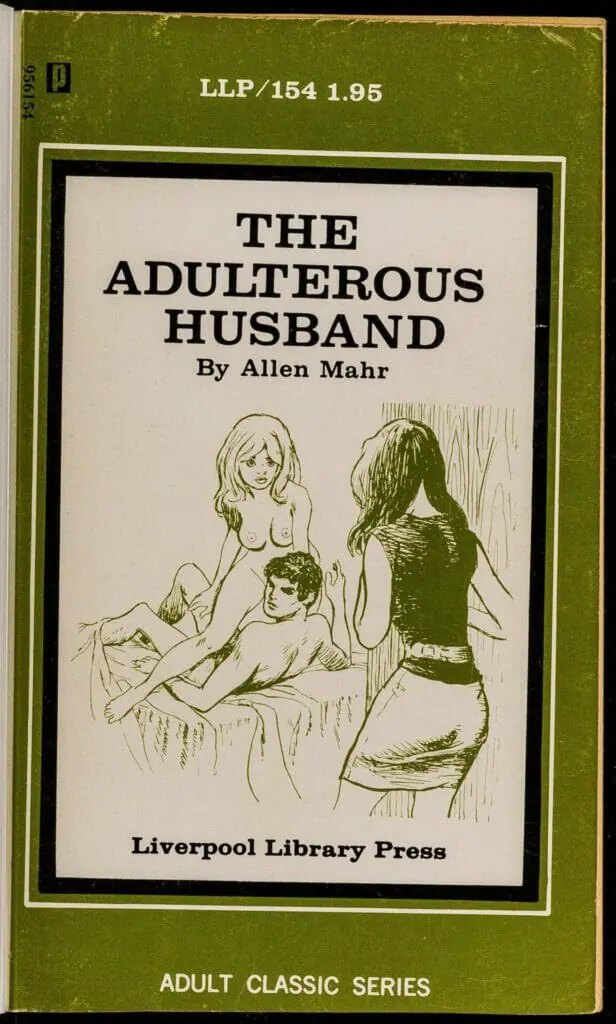

Let's Talk!
If you have questions about using Gale LibGuides or A-to-Z list import files, please feel free to reach out to Gale's Academic Outreach & Engagement team. We are happy to help you customize, copy, share and upload materials to your Institution's site.
The Loves of Venus, or the Young Wife’s Confession is a Victorian erotic novel published in 1881 which reminiscences on the sexual encounters of a husband and wife, and perversely the incestuous relations between a brother and sister. The text varies from poems to letters addressed to one another, and even includes very explicit drawings of their sexual encounters.
One poem is written from the perspective of a newlywed woman, Emma, as she recollects having sex on her wedding night. Despite her initial reservations and ‘prudish resistance’, Emma embraces her sexual desires. Emma’s initial hesitancy highlights the conflict between the societal shame surrounding sex at the time and the sexual duties Emma feels she has to perform as a wife.
Sex is also portrayed as a sacred, heavenly act between husband and wife, as Emma is described as having ‘wafted to heaven’. Emma then embraces the pain and pleasure induced by sex and goes on to take charge of their sexual encounter. Emma reverses the power dynamic by telling her husband how she wants to be pleasured and being unashamed of her desires.
Despite the progress which erotica makes by dealing with stigma around sexuality, the portrayal of women is often constraining and limiting. Even the sexual encounter above, in which Emma is portrayed to have some agency is clearly written with a male perspective in mind. Emma repeatedly uses language of conquest, and refers to herself as ‘his snug little dwelling’ – an object for pleasure and comfort, rather than an equal.
The dichotomy between husband and wife, and their sexual roles, is also seen through the explicit labels of ‘lion’ for her husband and ‘his prey’ for Emma. Although Emma is proud of her sexuality, it is only praised in the context of pleasuring her husband. Sex is regarded as an obligation for women rather than an option.
 In The Adulterous Husband, a classic adult novel published in 1969, the reader follows the story of a married airline stewardess and her husband who both decide to cheat on one another and the wife eventually begins an affair.
In The Adulterous Husband, a classic adult novel published in 1969, the reader follows the story of a married airline stewardess and her husband who both decide to cheat on one another and the wife eventually begins an affair.
The foreword of this erotic novel, where the publisher comments on the morality of the actions of the characters and the book as a whole, is especially interesting. The publisher writes: ‘Mr Mahr’s book attempts no justification for the acts performed on either side. He merely narrates them as they fall into place, as any good novelist should do. It is ultimately the reader who is, and should be, the jury…who must make the final judgement.’ In this way, the publisher is emphatically insisting on the amoral status of the erotica (that the novel is labelling the actions of the characters as neither moral or immoral, instead leaving it up to the reader to decide).
Despite the supposed amoral status of the erotica, the female protagonist is already cast in a negative light in the foreword, as her husband is deemed ‘neglected’ and her feelings are ignored. And when the erotica describes a sexual encounter between Larry, a pilot, and Bobbi, Mahr villainises Bobbi. The author frames Larry’s sexual assault of Bobbi as Bobbi’s fault, regardless of Bobbi’s explicit lack of consent.
Throughout the book, Bobbi, the air stewardess, is continually sexualised and objectified by all the men she encounters. Mahr also romanticises the violence and brutality of sexual encounters and normalises the blatant disrespect with which Bobbi is addressed.
Bobbi is shamed by her husband for pursuing a career which she loves and not adopting her role as housewife and homemaker. She is condemned for failing to uphold the standards her husband deems fit for a wife and woman.
Women are continually viewed as sexual objects whose sole purpose is providing sexual gratification for men.
The Private Case from the British Library offers a myriad of different sexual encounters in the form of erotic literature which offer readers a perspective on contemporary attitudes towards sex at certain points in history. It is important to note the limitations, as erotica often catered to a male perspective and fails to capture the authentic experience of sexual encounters from a women’s perspective. At the same time, erotic literature is an area which is often overlooked and stigmatised, even though it contains valuable insights into attitudes and, albeit fictionalised, sexual encounters of people at that time.
The content of this LibGuide was adapted from the original author’s blog post which can be found here. Some of the author’s original words have been edited to accommodate general research inquiry related to the topic.
Gale is committed to helping students discover research insights to advance learning and research. Gale Ambassadors are students who work within their own university to increase awareness of the Gale primary source collections available to their fellow students. Our Ambassadors study a variety of different disciplines, and all are open to receiving thoughts or questions from other students at their university about Gale Primary Sources.